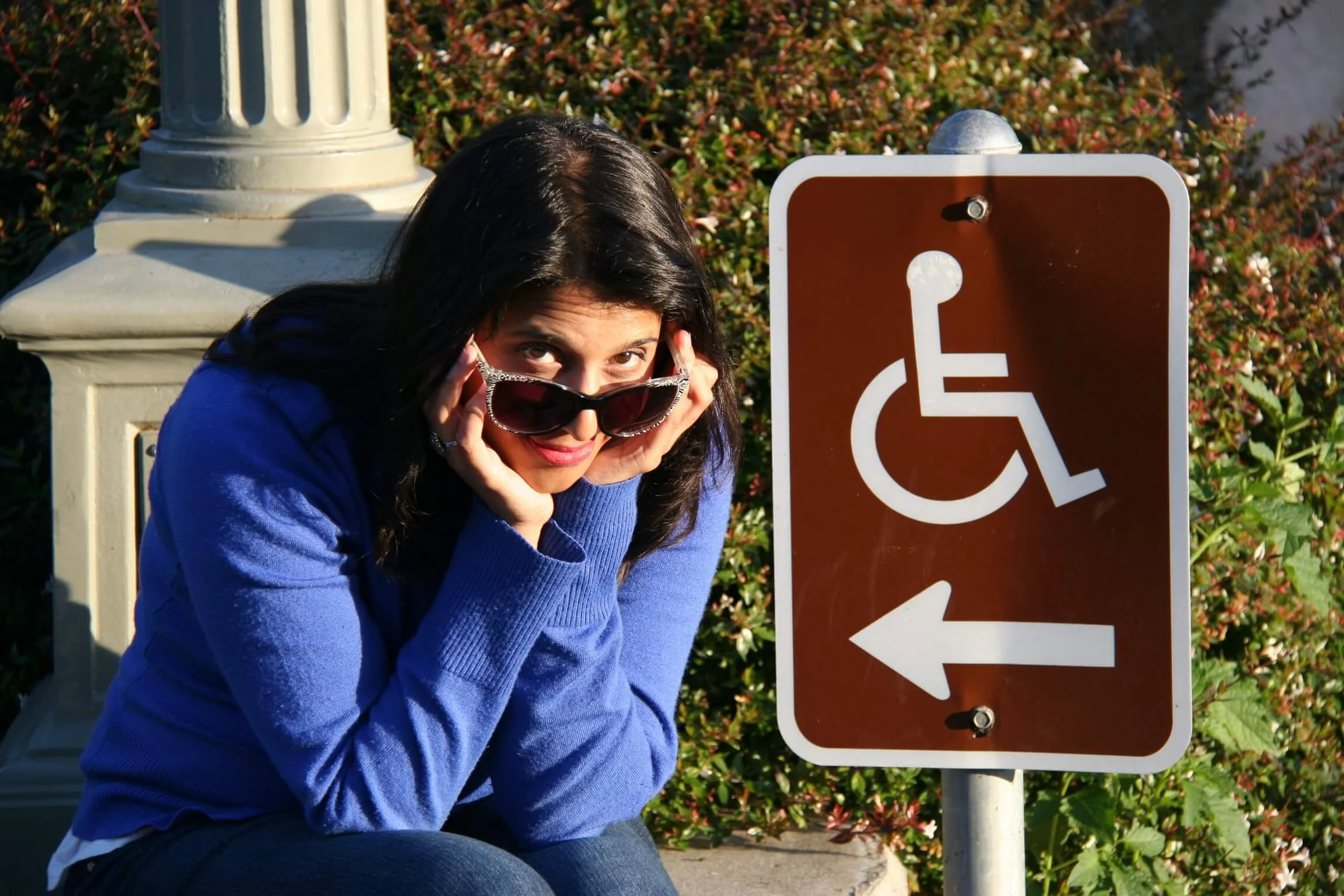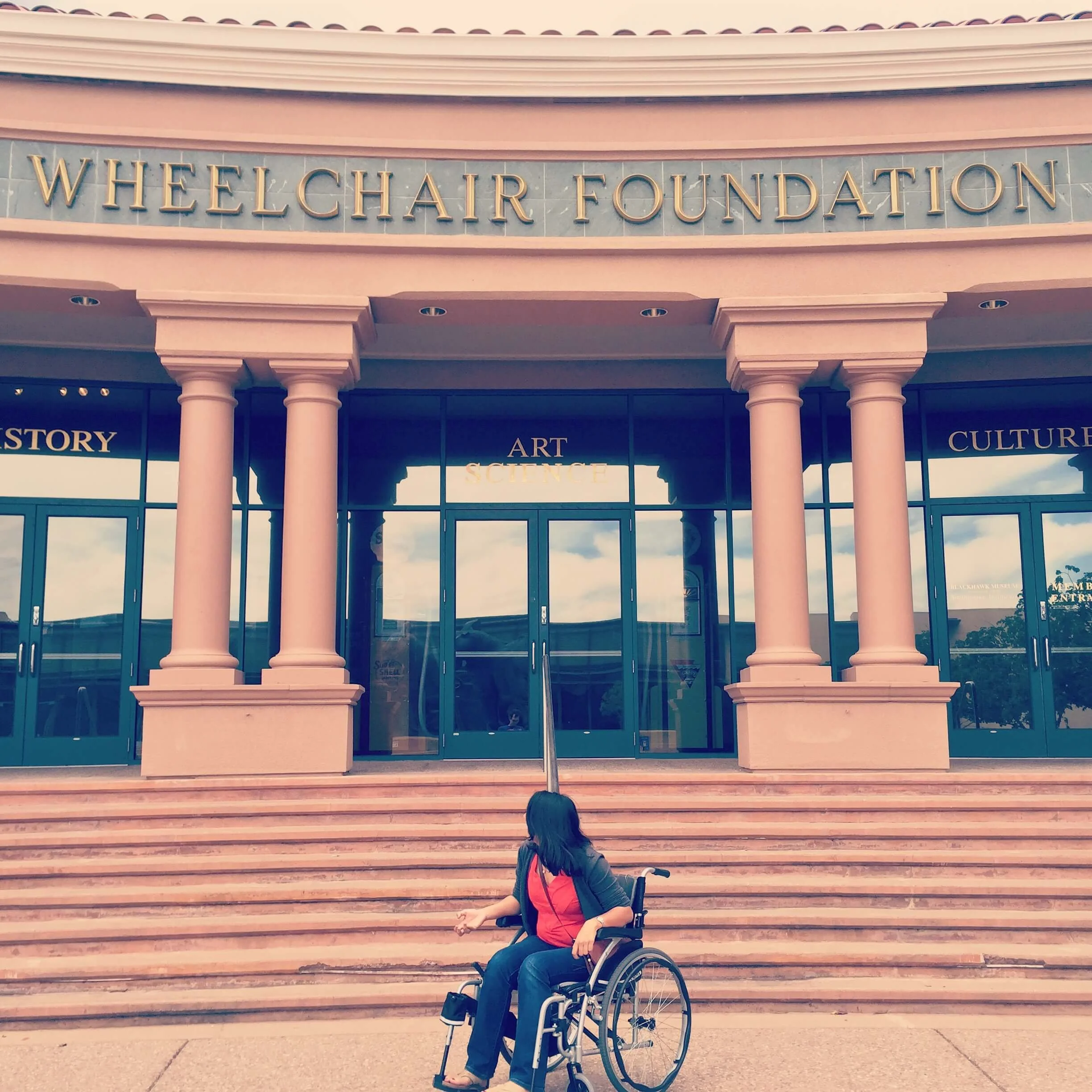Self-Advocacy Q&A with Lia Seth
Lia Seth
"Living with an invisible condition and using a mobility device. Sharing my story to emphasize the importance of self-advocacy and to raise awareness, understanding, and support.”
LinkedIn - Lia Seth
“Most people around you want you to be successful, and advocating for yourself is just letting them know what you need to make that happen.”
Tell us a bit about yourself, your diagnosis journey and the invisible condition(s) you are living with.
Though I didn’t receive a formal diagnosis until I was 25, I knew I had a disability several years before then. In college, I was always surprised by my friends’ energy levels and eventually realized that my chronic pain and fatigue weren’t normal. Even as a kid, I occasionally walked with a limp and got tired quickly. After lots of research and finding the right doctors, I finally felt comfortable using mobility devices. Even recently, nearly a decade after my original diagnosis, I’m still learning more about my invisible conditions and what triggers make them worse: stress, lack of sleep, physical exertion, etc.
How would your friends describe you and your personality?
The word I hear most from friends is “loyal”; I’m fiercely supportive and protective of the people around me. I’ve translated that into my HR career, where my professional mission is to make everyone’s lives easier and support employees through major transitions like going on parental leave or moving into management.
Are you comfortable sharing about any stigma or discrimination you’ve experienced due to your condition?
Before I used mobility devices, I would get dirty looks for sitting in the accessible seats on public transit, and was once spat on for not giving up my seat. It’s like people don’t understand or believe that someone who looks young can have a disability or invisible condition. Strangers will routinely ask me if my parking tag really belongs to me.
The worst experience was a manager telling me not to use my wheelchair when attending client events. I was too junior in my career to know that that was an illegal request, and continued to attend, standing and networking in my uncomfortable “professional” shoes. That moment indirectly led me to my career in HR, where I can educate and support people.
What does self-advocacy mean and how have you managed to advocate for yourself? Any advice to share?
By definition, self advocacy is standing up for yourself, but that can be scary, hard, or unsafe for so many people, depending on their situation. I spent a long time not knowing how to advocate for myself, but as I’ve advanced in my career, I’ve become more secure in my position and comfortable speaking from a place of confidence. For people who are younger or more junior, a community-centered approach of leaning on others for advocacy and support is totally fine, and may be the best option.
What motivates you to disclose your disability despite the courage it requires?
I once gave a presentation at work about ableism and disability advocacy. I got a lot of great responses from allies who told me they learned a lot from me sharing my experience and appreciated my perspective. One employee, in particular, reached out later that day to thank me and then told me that she had a disability she had never disclosed at work before, and that watching my presentation was the first time she felt like it was okay to talk about it.
I think about that message ALL THE TIME and recognize that as I’ve grown more senior in my career, I can and should use my position to speak up. I’m lucky enough to have the courage to tell my story, and just doing that can show support to others who need that courage themselves.
If someone struggles to advocate for themselves, what advice would you offer them?
Recognize that the things you’re asking for are likely not outlandish. Accommodations are incredibly normal! Anyone with glasses has accommodations. Most people around you want you to be successful, and advocating for yourself is just letting them know what you need to make that happen.
What encouragement would you offer to someone living with an invisible condition who is considering whether to openly share their journey and experiences?
The disabled community is larger than many of us realize – a staggering number of people have invisible conditions that you would never know about if they didn’t tell you. If you do choose to share your experience, odds are that someone you tell will be able to relate to what you’ve been through. You’ll be surprised by how many people respond, “I thought it was just me!!” It’s never just you, and you’re not alone in this journey.
Bio:
Lia has nearly a decade of experience in the HR space, and focuses her work on making the employee experience accessible and inclusive. She is a Lifetime Girl Scout, outspoken disability advocate, and proud pub trivia champion and host.
LinkedIn - Lia Seth




